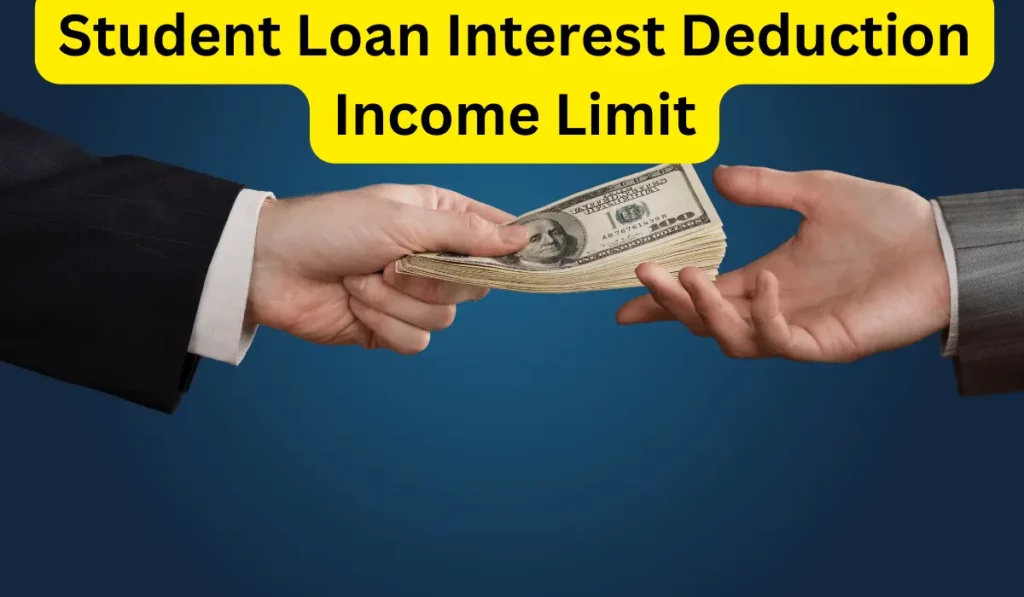Understanding student loans can feel overwhelming, but there’s a helpful tool called the student loan interest deduction. This deduction lets you lower your taxable income by the amount of interest you’ve paid on your student loans. It’s like getting a discount on your taxes for the interest you’ve paid. Not everyone can use it, but for those who qualify, it can be a great way to save money.
Let’s take a closer look at how it works, who can use it, and how it compares to other tax benefits.

What Is the Student Loan Interest Deduction?
The student loan interest deduction helps students who have a lot of debt feel a little better. It’s a provision in the federal income tax code that allows individuals to trim up to $2,500 from their taxable income, courtesy of the interest paid on qualifying student loans.
Eligibility and Income Limits
Not everyone can bask in the glow of this deduction. Eligibility hinges on factors like filing status and income level. For instance, for the 2023 tax year, single taxpayers with a modified adjusted gross income (MAGI) between $75,000 and $90,000 might see the deduction gradually diminish, while those above $90,000 won’t qualify at all. Married couples filing jointly face similar thresholds, with MAGIs between $155,000 and $185,000 falling into the phase-out zone.
Also Check:- Bank of America Student Leaders Application
How Does It Work?
Claiming the deduction is akin to summoning a financial wizardry. Individuals can slice off up to $2,500 from their taxable income, provided their MAGI doesn’t soar above the designated threshold. This deduction dances directly onto Form 1040, bypassing the need for tedious itemization on Schedule A.
What Loans Qualify?
Not all loans are created equal in the eyes of the IRS. To snag the deduction, loans must meet specific criteria. They must have been secured for the taxpayer, their spouse, or their dependents, utilized during an academic term of at least half-time enrollment, and designated for qualified higher-education expenses, like tuition and textbooks.
Beyond the Deduction
Think of the student loan interest deduction as a bright light, but it’s not the only good thing out there when it comes to tax breaks for education. There are other options like tax credits, which can actually reduce the amount of tax you owe by directly taking dollars off the bill.
The Grand Finale: Other Tax Breaks
Beyond the student loan interest deduction, a smorgasbord of tax breaks awaits education enthusiasts:
- American Opportunity Tax Credit (AOTC): Offering up to $2,500 per eligible student per year, this credit sweetens the deal for those footing the bill for the first four years of post-secondary education.
- Lifetime Learning Credit (LLC): With no cap on the number of years one can claim it, the LLC extends a hand to students pursuing various educational endeavors, granting up to $2,000 per tax return.
- College Savings Plans: Parents can tap into 529 Plans, which furnish tax advantages as they stash away funds for their offspring’s educational pursuits. Recent legislative tweaks even allow for the use of these funds for K-12 tuition expenses.
When you’re trying to save money while paying for school, the student loan interest deduction is like a trustworthy friend. But it’s not the only help available. There are lots of other tax breaks that students and parents can use to save money and improve their financial situation.
FAQs
Who can claim the student loan interest deduction?
Generally, anyone who meets the eligibility criteria, including filing status and income level, can claim this deduction. However, it’s essential to ensure the loan and expenses meet IRS qualifications.
What if I paid more than $2,500 in interest on my student loans?
Unfortunately, the deduction is capped at $2,500, even if you’ve paid more. However, you can still benefit from the deduction on the maximum allowed amount.
Do I need to itemize my deductions to claim the student loan interest deduction?
Nope, you don’t need to. When you claim the student loan interest deduction, you don’t have to list out all your deductions separately. You just report it as part of your income adjustment on Form 1040.
What if I haven't received Form 1098-E from my lending institution?
If you’ve paid more than $600 in interest for the year and haven’t received Form 1098-E, you can download it directly from the IRS website or contact your lending institution for assistance.
I am the mind behind nammatech.com. I have an experience of more than 8 years in the digital marketing field. The idea behind starting this blog came when one of my friends find it difficult to fill out the application form. So, I came up with an idea to start a blog on this niche.

![Low-Income Housing for Disabled Adults, Seniors Near me [2024] housing for disabled adults](https://nammatech.com/wp-content/uploads/2023/03/Low-income-housing-for-disabled-with-no-waiting-list-near-me-USA1-150x150.webp)
![Low-Income Housing for Seniors near me in USA [2024] Low-income-housing-for-seniors](https://nammatech.com/wp-content/uploads/2023/03/Low-income-housing-for-seniors-150x150.webp)
![Low-income housing with no waiting list near me in [2024] Low-income housing with no waiting list near me](https://nammatech.com/wp-content/uploads/2023/03/Low-income-housing-with-no-waiting-list-near-me-150x150.webp)



![What documents do you need for TSA Precheck [A - Z Guide] What documents do you need for tsa precheck](https://nammatech.com/wp-content/uploads/2023/01/documents-need-tsa-precheck-150x150.webp)
![Homechoice Account Application 2024 [Open New Account] homechoice account application](https://nammatech.com/wp-content/uploads/2024/03/homechoice-account-application-150x150.webp)